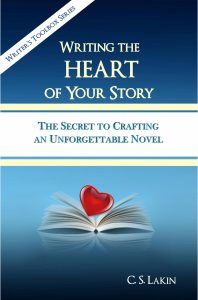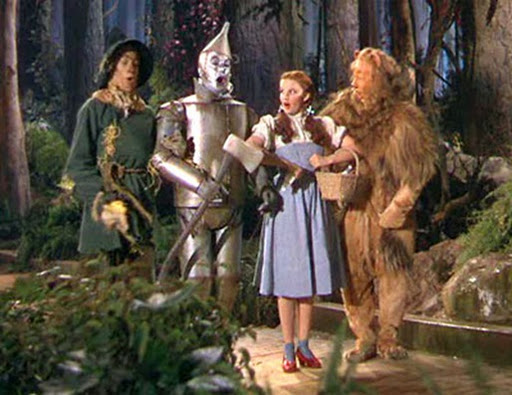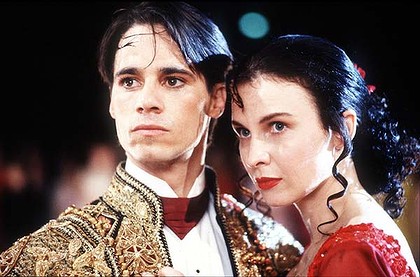Writing the Heart of Your Story
By way of introduction, here are some thoughts discussed in my book Writing the Heart of Your Story—important things for novelists to think about when deciding to commit the time and effort toward crafting a novel. May this book be just the guide you need—showing you how to get to the heart of your story so you can touch readers’ hearts.
What would you say was the difference between a good book and a great one? Between a forgettable novel and a classic that lingers long in your memory, maybe even for years? Between a book with a title and plot you’ve forgotten mere days after you read it and one with lines that haunt you for years, and characters that seem so real you find yourself thinking about them over a lifetime and wondering what they would say or do in a given situation? Some good books provide an entertaining read, much like a good meal will satisfy. But then there are those other books. You know the ones I mean. Those are the ones you hope you’ll find as you look for something significant to read, the ones you earnestly search for as if seeking a precious gem, with the desperate hopefulness of a miner panning for gold, day in and out, waiting for the big strike. A book with that kind of magic—that resonates with our heart and somehow fulfils a need in our soul—that is the mother lode.
Books like that are more than just a good, or even great, read. They speak to us on some integral, deep level and nourish us. They speak to our heart. If your greatest desire as a novelist is to reach and affect a reader’s heart in a significant way, to “strike home” with some theme, message, or emotional resonance, you have to tap into your own heart and explore why you are writing the story you’ve chosen to tell.
How to Target the Heart
So, as a writer, how do you do that—target the heart of a story? Is there some secret, or a trick to it? Do those “great” writers who write timeless, unforgettable books use some arcane method or formula that no one knows about? Nope. But I would venture to say they have a drive or need to do more than put a bunch of interesting words on a page—or appeal to the masses in order to sell a certain number of copies. They not only have a story to tell, they want to tell it passionately. They have a story with heart, that will appeal to the heart, and they delve into their own hearts to tell it.
Ah . . . there’s the key—being brave, daring, and vulnerable enough to get into the deep, scary feelings that are stored in the heart. For, if writers do not go deep, their writing won’t either. If their writing doesn’t drag them long into late-night hours with grabbing intensity, it won’t keep anyone else up reading either. If their writing doesn’t possess them and draw life from them in order to come alive, the story will be flat, and maybe even feel dead. Lifeless. Boring. Sometimes you have to mine deep into the caverns of your heart before you find what you are looking for. And it may take some time. Each story you mine will be different, and will require a new journey on perhaps unmapped trails and dimly lit tunnels.
The Road That Few Writers Take
Think of this excursion as a holistic endeavor—a joining of mind and heart. For many writers, constructing a novel is mostly a “mind” exercise. Some check their emotions, personal feelings, and experiences at their office door and dive into writing with full-throttle brain power. Even so doing, a person can learn to write well enough [read: technique, craft] to evoke particular emotions and reactions in a reader, and thus be successful in producing a very strong novel that may get acclaim.
But as G. K. Chesterton so aptly noted, “There is a road from the eye to the heart that does not go through the intellect.” That’s the less-traveled road is the one we want to explore if we want to reach readers’ hearts. That road takes you to a deeper level than you can reach with your intellect, and if you’ve ever had a moment when you’ve written a mind-blowing sentence or paragraph, or you’ve found tears streaming down your face as you reread a passage you just wrote (okay, maybe you too are thinking about that scene in Romancing the Stone, in which romance writer Joan Wilder is reading the end of her novel and weeping away), you know there is that special place a writer can get to, a Shangri-la or nirvana where magic happens. Where you reach the heart, and it’s pumping wild and strong.
For some of us writers, that’s the place we aim to get to every time we sit down to write. That’s the runner’s high, or the climber’s euphoria. No, we aren’t striving to get there to grab a temporary thrill that will fade after a few hours. We strive to get to that place because it’s the most genuine, truthful, barest center of our existence. So take the time to ask yourself these questions, and let the answers be the impetus to telling your story:
- What passion inspires me to tell this particular story?
- What idea or “message” do I long to get across to my readers in this book?
- What would I say is the enduring theme of this story, and how do I feel about this topic?
- What scene or element in my story gets me excited? Why?
- What would my main character die for?
- Who will be uplifted by this story and why?
 Once you have clear answers to these questions, let those answers inspire and guide you as you write your novel. Make sure each scene you construct is influenced by these answers and points to the heart of your story. And don’t be afraid to explore your deep feelings that bubble up as you write about things you are passionate about. If you do all these things, you just might write a story that expresses the deepest passions of your own heart—and reaches the heart of your readers.
Once you have clear answers to these questions, let those answers inspire and guide you as you write your novel. Make sure each scene you construct is influenced by these answers and points to the heart of your story. And don’t be afraid to explore your deep feelings that bubble up as you write about things you are passionate about. If you do all these things, you just might write a story that expresses the deepest passions of your own heart—and reaches the heart of your readers.
If you truly want to explore how to get to the heart of your story, click here to purchase the ebook or paperback on Amazon. Don’t write a good novel; write a great one!
Photo Credit: h.koppdelaney via Compfight cc












Hi Susanne!
I love the sound of this book. Can I share this post at my blog?
I hope you sell a lot of books.
Hugs,
M
Absolutely, thanks!
Thank you for writing this special book. I have purchased the kindle version and will dive into it this afternoon. Writing from the heart has been my goal from the beginning. Flowery words or descriptive passages is not enough for me when picking up a book to read. When I write, I endeavor to give the reader that untamed passion I expect from a novel. Passion, that’s what life is all about. Thank you.
Well, that purchase took all of one minute! Love the cover design. Congrats!
Thanks so much! I hope the book helps you write great novels!
Congratulations. I love what you write. If there is no heart and passion, for me there is no story.
I jumped right over to buy this book and port it directly into my cloud reader! I’m so thankful to have found this blog and its plethora of amazing information. I especially love the tips I can adapt from movies and scriptwriting!
Thanks for the kind words, Heather. Enjoy the book and tell your writer friends about it!
First, congrats on the book. I can’t wait to get my hands on it! Second, the heart is the hardest thing for me to slow down and really massage out of my writing. Silly, right? Should be the easiest but I find my own heart stormy and obscured sometimes…making the leap to the story is scary sometimes!
Megan, thanks for sharing that. I wrote that course and book because there really are no writing craft books available that teach writers how to evoke the kind of emotional response needed from readers. As Michael Hauge says, the sole purpose of a story is to evoke emotion, but writing craft books don’t explore that. That is the reason I write–to get to the reader’s heart, more than anything else. So I hope this book helps you do that!
Getting to and through your own murky feelings is the hardest thing, perhaps because we do so little of it in our lives! I can’t wait to read this; it reminds me that’s where I need to start my stories! thanks and best wishes for the success of your book.
I am half way through this book and can’t tell you how wonderful it is. I have learned so much and it is helping me rework my first draft and get right to what they purpose of my story is. Fantastic!
I’m glad to hear it! Be sure to post a review on the book too, if you feel so inclined. Thanks!